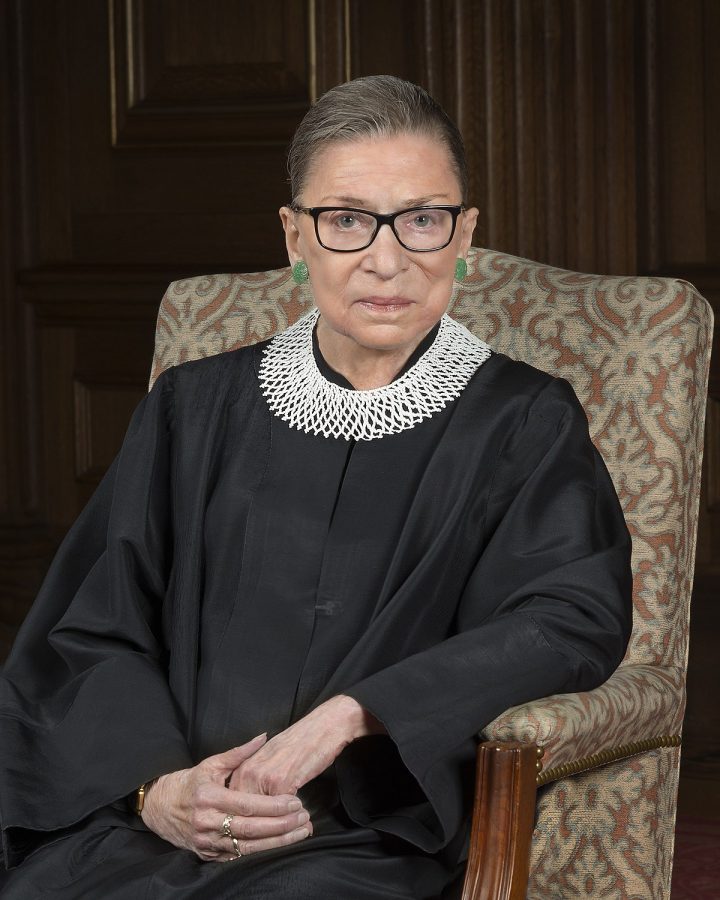The Legacy of Ruth Bader Ginsburg
Supreme Court Justice Ruth Bader Ginsburg died at age 87 on September 8, 2020. This was a devastating day for many but her legacy will be one remembered for generations, as she was a feminist icon.
Many are concerned of the repercussions her death will have politically and on the justice system. However, her legacy as a women’s rights activist should be celebrated separately from her political and legal presence. Ginsburg’s determination and high court standing put her in a unique spot for advocacy, a position a limited number of women are in. Through her legal platform, Ginsburg dedicated her entire career to get justice for women. She was arguably one of the most influential women advocating for women’s equality. Her loss is hard for the world to bear.
One of her most well known accomplishments is the strike down of the men-only admissions policy of the Virginia Military Academy, violating the Equal Protection Clause. She also enacted the Lilly Ledbetter Fair Pay Act, which requires employers to ensure that their pay practices are non-discriminatory. Ginsburg co-founded of the Women’s Rights Project at the ACLU, an ongoing project meant to bring the attention of sex discriminations to the court. In gender discrimination cases she also created a novel tatic, which ccording to the article, “Ruth Bader Ginsburg’s life and work propelled women’s equality front and center” by Barbara McQuade was, “finding male plaintiffs to challenge laws that discriminated ‘on the basis of sex.’”
While Ginsburg was a powerful advocate for women’s rights,she believed in equality not just bettering the lives of women. She advocated for any law that made men and women unequal. For example, the Oklahoma statute allowed women to purchase low-percentage beer at age 18. However, they did not allow men to purchase it before they turned 21. Although the law put men at a disadvantage, Ginsburg still advocated that the ages be equal because it was gender discrimination. Her stance on equality was slightly controversial because many gender equality activists advocate for the betterment of women’s life, but Ginsburg advocated for equality amongst genders, no matter what that entailed. Ginsburg was a strong believer that equality meant equal rights no matter who a policy affected. Her stance may not be accepted by all but it actually put her in a better position to make change because she had a wider variety of support.
Ginsburg’s legacy as one of the most influential gender equality activists will not be a forgotten one because she dedicated her entire career to equality and was able to establish many acts that legally supported gender equality. Without Ginsburg, getting attention to certain gender issues in court will be difficult, however, throughout her career she has gained many supporters who will continue to demonstrate her ideals in her memory. Still, the current matter of concern should not be her replacement or who will fulfill her ideals. It should be her legacy, the focus as of now should be celebrating one of the most influential women in history not who will be the next supreme court justice.
Sources:
https://www.aclu.org/other/tribute-legacy-ruth-bader-ginsburg-and-wrp-staff
https://www.history.com/news/ruth-bader-ginsburgs-landmark-opinions-womens-rights-supreme-court

Sarah Sehgal's currently a Senior at West Morris Central High School. This is her second year writing for The Paw and she is very excited about it. Sarah...












